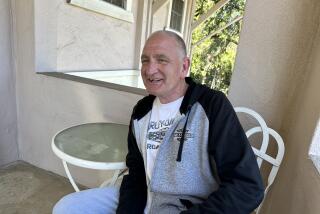The 2% solution is legal, even if 10% seems more Sherlockian--but how will it rate with the IRS?
My uncertainty over what I would do if I found $6 million in an abandoned car trunk has provoked some criticism from readers.
The consensus is that a man is either honest or he isn’t, and that in doubting my honesty in the circumstances above I am merely proving that, deep down, I am a thief.
However, in saying that I would have to think about what to do with $6 million in found money, I had in mind the case of two car rental employees who found $5 million in cash and $1.22 million in gold and platinum in the trunk of a returned car, and received an award of only $75,000 each from the government.
It was my friend Duke Russell who called the story to my attention. I doubt if I know a more honorable man than Russell, and yet he considered that paltry reward as tantamount to robbery.
I did not really say that I would take the money; I was merely suggesting that I might hesitate to turn it over to the government if my reward was going to be so miserly. We cannot foresee how we will respond to unimaginable temptations. A $150,000 reward for a $6.22 million find is about 2%, or about 1/10th of what I tip a waiter for serving my dinner.
In this case the limit was imposed by a federal law making $150,000 the limit a citizen can recover on found money that is connected with illegal drugs.
Why should the government tempt a citizen with such a measly reward?
I am mildly reproached for my indignation by U.S. Judge Albert Lee Stephens Jr. of Los Angeles, who recently upheld a district court judgment in the $6.22-million case.
“Your morality is clearly flawless,” he says graciously, “but I suggest there is a practical side to the situation which calls to mind that honesty is the best policy.
“Since $150,000 was distributed to the private citizens who helped in the seizure of the money, the maximum authorized by law, I think that it is less than kind to characterize this as a paltry reward.”
Judge Stephens encloses a copy of his review of the case.
Of course the judge is in no way to blame for the meager size of the rewards. The reward was set by the law. He merely affirmed that the two claimants were entitled to it, and to no more.
The fascinating thing about the case is that there were other claimants besides the two whose claims were rewarded. How those two found the money is simple.
Ann Smith Kamali and Nelson Garrett both worked for the Budget car rental agency at San Francisco Airport. Kamali was missing a Ford Tempo from her inventory and asked Garrett to see if he could find it.
Garrett found the car in the parking lot but couldn’t start it. He and Kamali drove another car to the Tempo and got it started. Kamali was unable to reach the renter by phone.
She drove the Tempo to lunch. In a routine security check, guard Pearl Lampros opened the trunk and saw luggage in it.
After lunch Kamali drove the car back to Budget and asked Garrett to help her unload the trunk. It included two unlocked duffel bags, two locked suitcases and a cardboard box. Kamali opened one of the duffel bags and discovered that it was filled with money.
Kamali called the San Mateo sheriff’s office. Two deputies soon arrived and took the money into custody. The sheriff notified the Drug Enforcement Agency, which confiscated the money according to law.
Claimants against the loot included not only Kamali and Garrett, but also Lampros, who had only seen the bags in the trunk, and Douglas Stavoe, another Budget employee who had first seen the Tempo in the lot and reported it. The State of California joined in, claiming that the money belonged to the state.
It was this tangle that the court had to straighten out.
First, Judge Stephens affirmed that the loot was indeed drug-related. A trained dog had sniffed narcotics; 15 milligrams of cocaine had been recovered from the suitcases; the car had been rented to a man who gave his local address as a Marin County motel that was known as a drug traffic station; he had a fraudulent Florida driver’s license and gave a false address in Miami; he had traveled from Miami to Atlanta to board a plane west, thus avoiding the tight security at Miami.
Even Sherlock Holmes could have figured that the money was a drug payoff.
So what to do about the claimants?
Kamali and Garrett tried to claim the whole amount by arguing that the money might not have been meant for drugs but for some foreign political activity, that any large amount of currency will be accompanied by cocaine.
Judge Stephens wrote: “With regard to the allegation concerning the usual presence of cocaine with large sums of money and the allegation of foreign political activity, Kamali and Garrett may not rely upon these bald and rather fanciful assertions to counter the government’s summary judgment motion.”
Lampros and Stavoe were left holding the bag.
“Their own admissions reveal the flimsy connection between them and the property. Their claims are based on a mere viewing of a car and luggage. They clearly lack standing to contest the forfeiture.” The state was also aced.
I wonder if they have to pay income tax on their $75,000.


